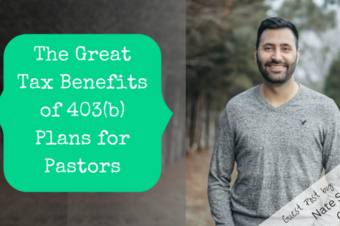Here in the Pacific Northwest, it is strawberry season. For most of us, that means we get to chow down on juicy berries that make us avoid the bland store-bought strawberries for several months afterward. For my daughter, it means business. Literally, business.
The minute the signs go up for the U-pick strawberry field near our house she starts asking when she can sell strawberries. You see, rather than just eating them, she likes to pick them and then set up her own stand by the side of the road to resell them. Yes, that’s her in the picture above.
It’s funny because at 5 she doesn’t seem to really care about money. Until strawberry season. Then, it’s all about earning money.
I think it’s a good thing. There are a lot of important life skills and lessons she’s learning as she sits in that field selling her wares. I think every kid should experiment with entrepreneurship, whether it’s babysitting, selling berries, pressure washing sidewalks, or something else. Here are some of the benefits of childhood entrepreneurship that my daughter and I came up with:
Practice Math Skills
When customers see how old my daughter is, they always want to test her math skills. If it costs $4 and I give you $5, what’s the difference?
I can’t blame them, though, because I do the same thing. It’s a great chance for her to practice that math that she’s been learning all year in kindergarten. Kids of all ages get a chance to put their math into practice when working with money. It’s good for them to see that there’s more to math than just endless worksheets.
Learn To Count Money
Working with money also gives them a chance to practice counting it. This is especially good for younger children who still see no more value in a $20 bill than a $1 bill. If you throw some coins in there, then the lesson gets really good. My daughter said that it’s important to learn to count money because “when you’re older you need to know how much you have.” She’s got a point.
Develop People Skills
One of the things that even trips up adults is that in order to make money, you need to interact with people. Entrepreneurship is good for your people skills no matter what age you are. Several years ago a neighborhood boy came to my door soliciting pressure washing and I was so impressed with how professionally he spoke to me and explained his services that I hired him on the spot.
If your kids have the opportunity to learn to talk to adults and explain their goods or services, it will only benefit them in the years to come. My daughter is young, so she is just learning to not be shy and look at people when she speaks to them. Older kids will have to rise to a different level of communication and sophistication of people skills, which is good for them.
Face & Overcome Fears
This one is closely tied with the last one because a lot of kids (and adults) are afraid of talking to people. But, like I said, in order to earn money you have to face your fears and interact with people. My daughter was a great example of this last year.
All spring she was scared to death of bees and wouldn’t look at or talk to anyone, even our next door neighbor whom she loves. However, when strawberry season came around, she spent hours sitting in a field full of bees and talking to strangers. I was so impressed with how she rose to the challenge and overcame her fears. Sometimes I wish I could be more like her.
Experience The Relationship Between Money & Work
Second Thessalonians 3:10 says that if you don’t work, you don’t eat. The concept that nothing is free and you have to expend effort in order to get a reward is being lost in our current culture. To me, the most appalling part of the Green New Deal that is being floated around is that they demand a living wage for anyone who is unable or unwilling to work. Yes, you should receive a living wage for doing nothing even if you’re perfectly able to work. Wouldn’t that be wonderful?
Unfortunately for some, the real world doesn’t work that way. If you want something, you have to work for it. There is a relationship between work and money and the sooner our kids can learn that the better our entire society will be.
Learn How Business Works
I studied business in school, so I’m a little biased, but I think everyone should learn about business. If you have a young adult going off to college that doesn’t know what he or she wants to study, have them study business. It is applicable to anything you do in life.
Going to work in a bank? You need to understand business. Going to be a professional artist? You’ll really need to understand business. Going to be a pastor? A lot of business principles still apply in the church (accounting, anyone?) even if some of your motivations differ.
Setting up their own little business will give kids hands-on experience with how business works. My daughter has learned that in order to make money, you need to have something (a good or service) that people want enough to pay money for it. To get that good or service you will need to either work hard for it or buy it. And then to make a profit, you need to charge more for it than it cost you.
This knowledge will help her later in life when she starts getting credit card offers in the mail. No, being pre-approved is not a special privilege because you are spectacular and unique. They are trying to sell you their product, a credit card, because statistics show that they will probably make money off of you. Lots of money.
Understand Economic Systems
As I mentioned above, you can’t sell a good or service if no one wants it. There has to be a demand for your product. And you can’t just charge anything you want. My daughter would have loved to have charged $50 a pint for her strawberries, but then no one would have bought any. She’s not that cute.
Supply and demand are basic economic principles that can sometimes be hard for kids to wrap their minds around until they live them out. Starting a business is an excellent way for kids to learn about economic systems by living them.
Learn To Tithe
My daughter can be incredibly generous most of the time, but not always. Every once in a while it’s like running into a brick wall and there’s no way around it, she simply won’t let go. When I brought up tithing in that field as we waited for customers I ran into the brick wall.
I had to use my entire Bible college education to try to persuade her that it’s worthwhile to give God 10%. It’s incredibly painful for her to think of parting with $3 of her hard-earned money but it will only get harder as she gets older and earns more and more. I think it’s very important to teach children generosity and tithing at a young age and the best way to do that is for them to start earning their own money.
Improve Prayer Life
When we were near the end of our berries and there were no customers coming, my daughter resorted to prayer. It was adorable to see her praying to God and asking him to send us customers. I think she was also trying to make a deal where her tithe was contingent on him sending customers, but hey, at least she’s starting on the right foot.
It may sound silly, but having their own business can be really good for your kids’ prayer life. Just try it and see.
Earn Money
Here’s the most obvious benefit: your kids can earn money if they start a business. Money to pay for Pokemon cards, ice cream cones, trips to the water park, and summer camp. The more money they earn, the less money will be coming out of your pocket. It’s a win-win for everyone.
When I asked my daughter why it’s good for kids to earn money, her response was, “To buy your own toys or when you’re older a phone so someone doesn’t have to give it to you for your birthday.” Kids’ activities and desires can be expensive and it’s good for them to learn to work for what they want.
Start A Roth IRA
Finally, if your kids earn their own money then you can open Roth IRAs for them. Anyone with earned income, regardless of age, can open a Roth IRA and contribute the lesser of their earned income or $6,000 in 2019. My daughter earned $33 selling berries last week so I’m going to put $33 of my own money into a Roth IRA for her.
Why would I do that? First of all, the sooner she starts investing, the longer her money has to grow. If all she ever invests is that $33, by the time she is 67 it will have grown to almost $7,000 if she can earn 9% returns (which is likely with her time horizon). I really don’t think she’ll use it for retirement, though. More likely she’ll use it to pay for college or buy her first house.
Contributions can be withdrawn from a Roth IRA at any time tax-and penalty-free. Also, once a Roth IRA has been open for 5 years, you can withdraw up to $10,000 of earnings to purchase your first home or take out money for qualified higher education expenses tax- and penalty-free. I think having her own investment account will also be a great teaching tool for her as she gets older, even if she doesn’t have much in it.
As you can see, there are a lot of benefits, both tangible and intangible, to your kids practicing entrepreneurship this summer. Perhaps more valuable to you than any of the above, it will also combat boredom. A kid who is out earning money is not moping around the house saying they are bored and annoying their siblings.
So, what are we waiting for? Let’s get these kids to work!









